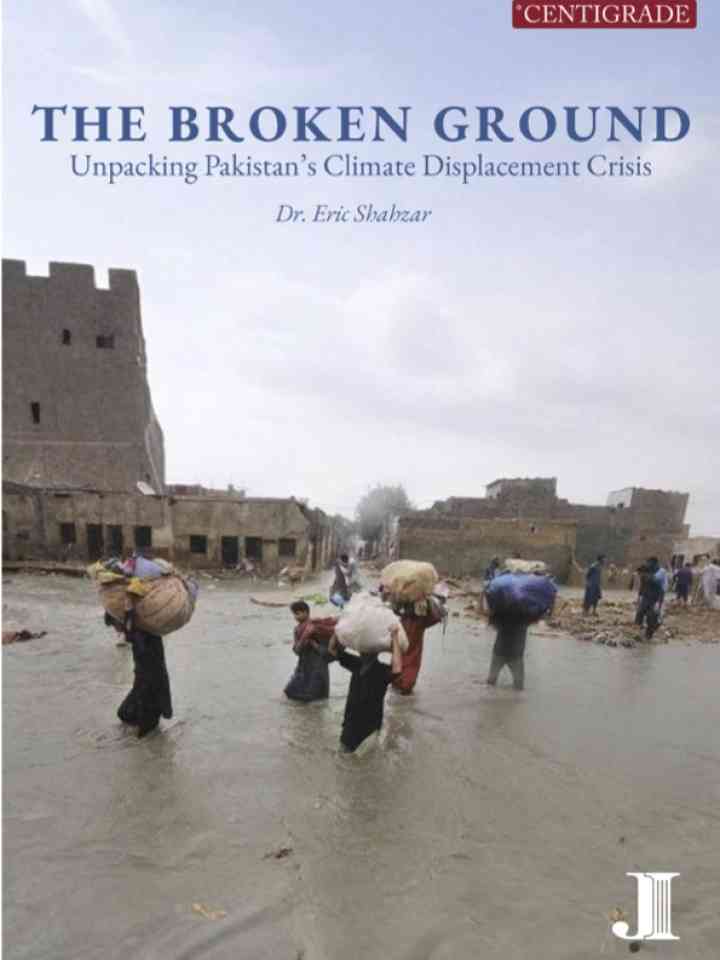The broken ground: unpacking Pakistan’s climate displacement crisis
This study, investigates the escalating impacts of climate-induced displacement in Pakistan. Authored by Dr. Eric Shahzar and published by the Jinnah Institute, the report focuses on how accelerated climate change—manifested through floods, glacial melt, droughts, and sea level rise—is uprooting millions of people across the country. It critiques Pakistan’s fragmented and underprepared policy response and argues for a unified, localized strategy that prioritizes the needs of displaced populations. The report also explores the gaps in global refugee frameworks that fail to protect climate-displaced individuals, emphasizing the urgent need for legal recognition and comprehensive adaptation policies.
The study reveals that over 8 million people were displaced by the 2022 floods alone, with future climate-driven migration projected to rise drastically—particularly in glacial regions like Gilgit-Baltistan and the coastal Indus Delta. It identifies institutional disarray, insufficient funding, and a lack of early warning systems as critical challenges. Coastal erosion has already displaced 1.2 million people, while glacial lake outburst floods threaten thousands more. Urban centers like Karachi are bracing for an influx of climate migrants, risking socio-economic strain. The report calls for investment in data systems, early warning technologies, district-level planning, and planned relocation frameworks to mitigate future displacement.
Explore further
